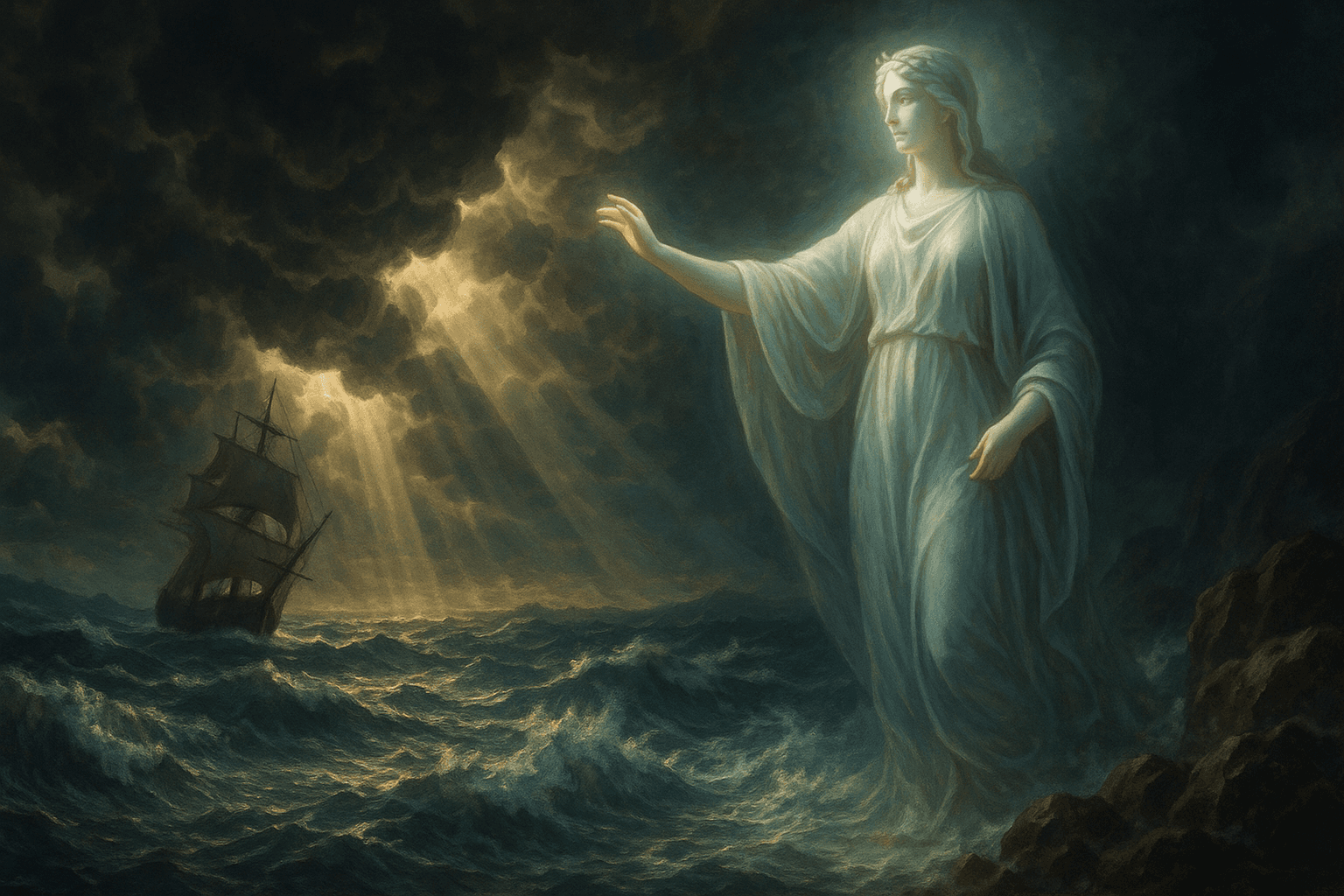The Divine Playbook: How the Gods Shape Human Destiny in The Odyssey

When you dive into the pages of The Odyssey, you quickly realize that the gods are far more than just legendary beings sitting on lofty thrones; they are active players in the drama of human life. Their involvement weaves a rich tapestry of fate, free will, and the consequences of both divine favor and wrath.
Take Ulysses, for example. His journey home from Troy is fraught with perils directly linked to the whims of the gods. After angering Poseidon, Ulysses finds himself at the mercy of the sea’s storms, a vivid reminder of how human actions can provoke divine retribution. Yet, it’s not all doom and gloom. Minerva, the goddess of wisdom, frequently intervenes to assist him, reminding us that divine support is just as influential as divine punishment.
In the early chapters, we see Minerva guiding Ulysses' son, Telemachus, as he grapples with the chaos left in the wake of his father's absence. Inspired by her, he embarks on a journey to find news of Ulysses, showcasing how divine influence can spur human agency. The gods don’t just sit back and watch; they actively shape the destinies of mortals. Each chapter serves as a reminder that human struggles are often intertwined with divine intervention.
As the narrative progresses, the relationship between humans and gods becomes even more complex. For instance, when Ulysses finally reaches the land of the Phaeacians, it’s a series of divine nudges that lead him there. Minerva not only aids him in navigating the unfamiliar territory but also enhances his appearance, showing how the gods can alter perceptions and outcomes in human affairs. This isn't mere coincidence; it’s a deliberate orchestration of events that highlights the interconnectedness of divine will and human action.
The theme of divine intervention comes to a head during Ulysses' return to Ithaca. After defeating the suitors, it’s Minerva who gives him the final push towards reconciliation with Penelope. Their reunion is steeped in divine influence, as she enhances Ulysses’ godlike appearance, reminding both characters—and us—of the trials they’ve endured and the divine forces that have shaped their journey.
But the gods also teach caution. Ulysses’ hubris often leads him into trouble, particularly during his encounter with Polyphemus, the Cyclops. Here, we see that while cleverness is admirable, defying the gods can bring dire consequences. The tale serves as a cautionary reminder that human agency exists within the bounds of divine will.
So, what’s the takeaway? The Odyssey illustrates that life is a dance between human ambition and divine influence. The gods can be supportive allies or vengeful foes, but their presence is inescapable. As Ulysses and Telemachus navigate their tumultuous paths, we see that their fates are as much in the hands of the gods as they are in their own. It’s a powerful reminder that while we may strive for agency in our lives, we are never truly alone—divine forces are always at play.
In the end, the gods in The Odyssey are not mere spectators but rather pivotal characters in the epic. They highlight the eternal struggle between fate and free will, reminding us that our destinies may be influenced by forces beyond our comprehension. Maybe, just maybe, there’s a little bit of divine intervention in our own lives too, nudging us in the right direction when we need it most.
Books: The Odyssey / Rendered into English prose for the use of those who cannot read the original
Authors: Homer
Publishers: Public Domain